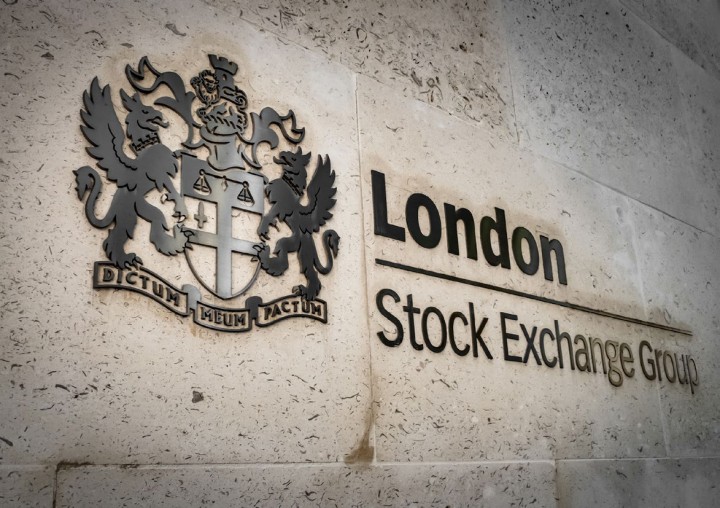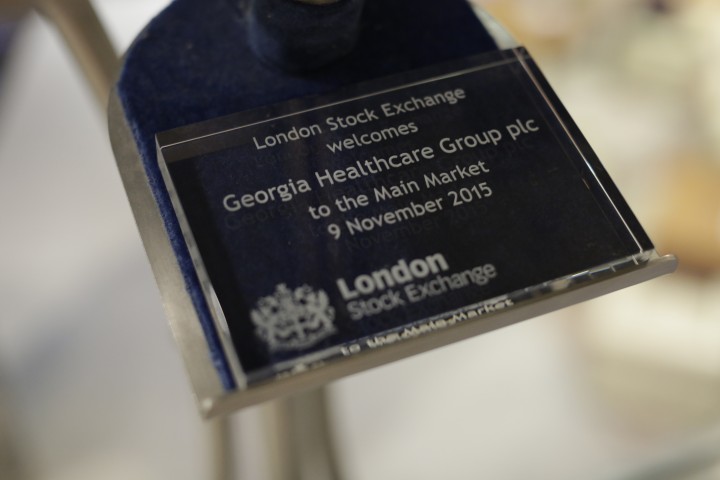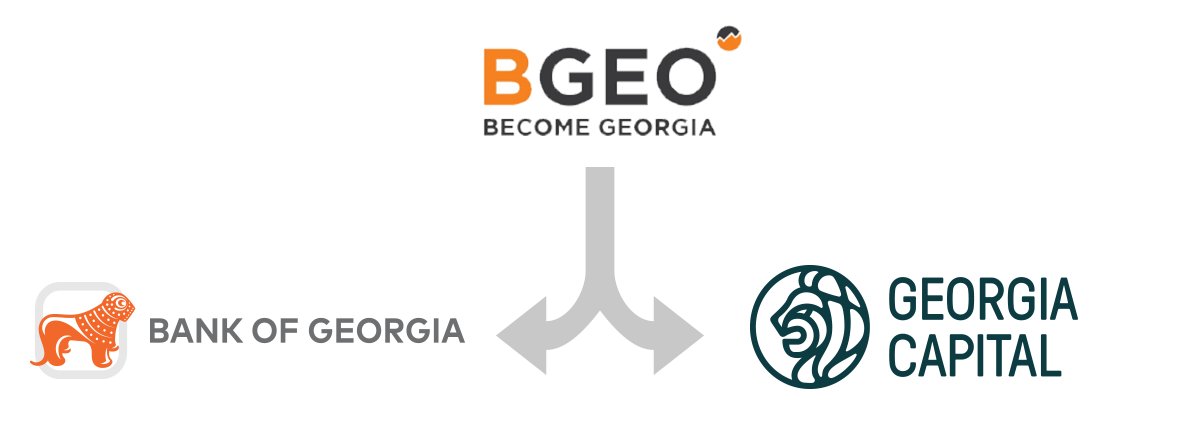- Retail banking not-existent in Georgia
- # of cards was 100k in 2004 (9mln in 2017)
- Loans to GDP was 10% in 2004 (56.1% in 2017)
- Banks were primarily catering to corporate clients

2004: Decision to enter Retail Banking

2006: GDR listing on LSE on 29 November 2006
- Raised US$ 160mln through IPO
- Headline demand US$653 million (4.7x oversubscribed)
- 103 investors bought GDRs with the offering (Institutional shareholders 84.8%)
- Market capitalization before listing was US$ 68.7mln
- Market capitalization in around one year after listing was US$ 681.2mln
.jpg?itok=xoesF4x8)
2007-2008: Exporting expertise to Ukraine & Belarus
Bank growing at 100%+ annually in Georgia: No.1 by assets (circa 32.9%), loans (circa 32.9%), deposits (circa 28.8%) and equity (circa 40.0%) at YE 2008
- Completed US$ 100mln rights issue in February 2008 to support growth
- Started actively pursuing sensible regional expansion opportunities:
- In 2007, acquired Universal Bank of Development & Partnership (UBDP), a mid-sized bank in Ukraine
- In 2008, Acquired Belarusky Narodny Bank (“BNB”)
.jpg?itok=TsqmILYR)
2009: Turnaround strategy
- Post-crisis/conflict aim was to remain in business
- Global economic crisis
- 2008 conflict with Russia
- Contraction of banking sector
- Raised US$ 239mln debt financing from IFC, EBRD, OPIC
- Strategic objectives: grow at the right price
- More efficient – Enhance operational efficiency through technological improvements
- Deposit funded lending machine – launched Wealth Management services
- Divesting of non-core assets – First stage of restructuring of equity investment business completed
- International operations – Scale down operations of BG Bank; Focus on high margin, unattended SME sector in Belarus
.jpg?itok=8slT776Y)
2011: Post-crisis/war new opportunities emerge
- Invest in growth opportunities (non-banking) to support strategic business (banking)
- Post-crisis, Bank repossessed land-plots from troubled developers and started housing development to improve liquidity of the repossessed-lands and to stimulate mortgage lending. Our Real Estate Business, m2 Real Estate, was born
- Healthcare reform started, increasing healthcare spending and stimulating investments. Started investing in healthcare services and health insurance. Our healthcare business, GHG, was born
.jpg?itok=906ZVX9D)
2012: Premium listing on LSE in February 2012
- Market capitalization after premium listing was US$ 607.7mln
- Institutional shareholders 90.3%
- Focus on UK style governance
- Group has independent board
- Senior management remuneration policy changed, tying compensation to long-vesting shares (3-5years) instead of cash
.jpg?itok=uzQnt9xW)
2014: Introducing 4x20 strategy
4x20 strategy:
Banking Business :
- ROAE c.20%
- Tier I c.20%
- Growth of retail loan book c.20%
Investment Business:
- IRR c.20% - Highly disciplined approach to unlock value through selective investments in Georgia, which have a well-defined exit path
.jpg?itok=ttoOf9T-)
2014: raising US$ 114mln to support growth
- In December 2014, completed US$ 114mln rights issue to support growth strategy
- Used proceeds to acquire:
- Privatbank, the 9th largest bank in Georgia by total assets with a focus on retail banking
- 25% shareholding in Tbilisi water and wastewater utility business

2015: Exit from healthcare business through IPO on LSE
- Completed healthcare business IPO in November 2015
- Raised c.US$ 110 million in primary proceeds and valuing GHG at a market capitalization of £218 million at the admission, with a 35% free float, following the exercise of over-allotment option that represented approximately 3% shareholding
- Invested GEL 142mln within 2011-2015 period, which was valued at GEL 553mln after IPO – 3.9xmoney at IPO
.jpg?itok=_oDxWS_b)
2016: Issuance of first hold-Co Eurobond to support further growth
- Completed US$ 350 million, 7-year, 6.000% Rule 144A/Reg S bond
- Lowest coupon achieved by a borrower from Georgia
- Longest maturity from Georgia
- Used part of the proceeds to acquire remaining 75% stake in GGU. The transaction was valued as GGU’s enterprise value at GEL 287.5 million, or 4.2x EV / EBITDA 2016E
- Started investing in development of beer brewery in Georgia to produce local as well as Heineken brands in Georgia through a ten-year Exclusivity license with Heineken. Brewery was launched in 2017.
.jpg?itok=roFecXvx)
2017: issuance of first ever local-currency Eurobond
- On May 24 2017 completed inaugural GEL 500 million offering of 3-year 11.00% notes
- The issuance was the first international local currency bond offering from the wider CIS region (excluding Russia) in the past ten years and represented a landmark transaction for Georgia
_0.jpg?itok=hb8lDCH2)
2018: Georgia capital’s US$300mm Eurobond issuance
- First ever non-sovereign owned corporate international bond from Georgia
- US$ 300 million, 6 year, 6.125% Eurobonds listed on Irish Stock Exchange, GEM market
29 MAy 2018: Demerger into the Bank and Capital

-
On 3 July 2017, announced intention to demerge into two separately London-listed businesses: a banking business, Bank of Georgia Group PLC (the “Bank of Georgia”, ticker: BGEO), and an investment business, Georgia Capital PLC (the “Georgia Capital”, ticker: CGEO).
- The demerger was approved at a General Meeting held in April 2018 and completed on 29 May 2018
Demerger rationale:
- Optionality for investors to make own choice when taking investment decisions
- Separate management teams with sharpened focus and more aligned incentives
- More business opportunities as a result of more flexibility in strategy and execution
- Regulatory clarity and flexibility –take advantage of various investment opportunities and better execute its growth strategy
- Two leaders in their respective sectors which are strongly positioned to pursue significant growth opportunities coming from rapidly growing Georgian economy
Full separation to unlock additional long-term value for shareholders of Georgia Capital:
- Will be the only professionally managed publicly listed investment company in Georgia benefiting from scarcity of competitors
- Wider access to investment opportunities: ability to establish more efficient and direct dialogue with Georgian corporates
- Opportunity to cooperate with leading Georgian banks which can be another channel of bringing new deals
- Enhanced flexibility to allocate capital and pursue growth strategy more effectively
As a separate entity, Georgia Capital would not be subject to the banking regulatory regime thereby improving its ability and flexibility to allocate capital.
